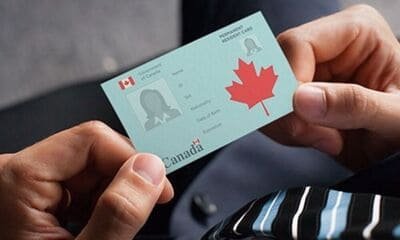Express Entry candidates face a crucial decision if their Comprehensive Ranking System (CRS) score changes after receiving an Invitation to Apply (ITA) for permanent residence (PR): they can either decline the ITA or proceed with their Application for PR (APR).
Operating as the platform for managing immigration applications, the Express Entry system oversees submissions from three distinct economic immigration programs: the Federal Skilled Worker Program (FSWP), the Canadian Experience Class (CEC), and the Federal Skilled Trades Program (FSTP). The sole pathway to Canadian PR entails receiving an ITA from Immigration, Refugees and Citizenship Canada (IRCC) during an Express Entry draw.
Once an Express Entry candidate receives their ITA, they transition to “applicant” status and IRCC gives the individual 60 days to submit their APR.
What happens if my CRS score changes after I get an ITA?
In some instances, a candidate’s eligibility for the ITA they received from IRCC may be impacted by a material change, either positively or negatively. Examples of such changes include alterations that affect a candidate’s CRS score, which can be outlined as follows:
IRCC advises that if a candidate becomes aware of changes in their circumstances or inaccuracies in their profile information, they have two options for how to proceed. However, before taking any action, candidates are instructed to recalculate their CRS score to reflect the altered circumstance(s).
Option 1: Decline the ITA
Candidates experiencing changes that potentially lower their CRS score or affect their eligibility for the program are “encouraged” by IRCC to decline their ITA. This allows candidates to revise the information in their Express Entry profile to reflect the updated circumstances accurately.
Option 2: Proceed with submitting the APR
Candidates who prefer not to decline their ITA despite changes in their circumstances may still submit their APR to IRCC. However, it’s essential to note that candidates choosing this option are responsible for ensuring that any changes in circumstances are accurately reflected in their APR. This entails correcting any information transferred from their Express Entry profile before submitting the application, regardless of whether the change is positive or negative.
Examples of changes that may affect your CRS score
After receiving an ITA, various changes in circumstances may affect an applicant’s CRS score. Here’s how:
Potential CRS score increases:
- Graduating from a higher level of schooling
- Achieving the threshold for an additional year of Canadian work experience
- Attaining a certificate of qualification
- Improving language test scores
Potential CRS score decreases:
Retaking a language test after original scores expire but obtaining lower results Losing a qualifying offer of arranged employment Additionally, the addition of a spouse or common-law partner to the Express Entry application may lead to either an increase or decrease in the principal applicant’s CRS score. This change can affect the CRS score positively or negatively, depending on the human capital attributes of the spouse or partner.
Note: One change that does not penalize applicants regarding their CRS score after receiving an ITA is if their birthday occurs post-ITA issuance. Although age significantly factors into the human capital section of CRS score calculation, IRCC exempts ITA recipients from losing CRS points in this scenario.
What happens when you decline an ITA from IRCC
When an Express Entry applicant declines their ITA, they revert to “candidate” status.
Upon this change, their profile is returned to the Express Entry pool and remains active as long as it remains valid. Once back in the candidate pool, they can update their profile information and remain eligible for consideration in future Express Entry draws, provided they still meet the MEC.






